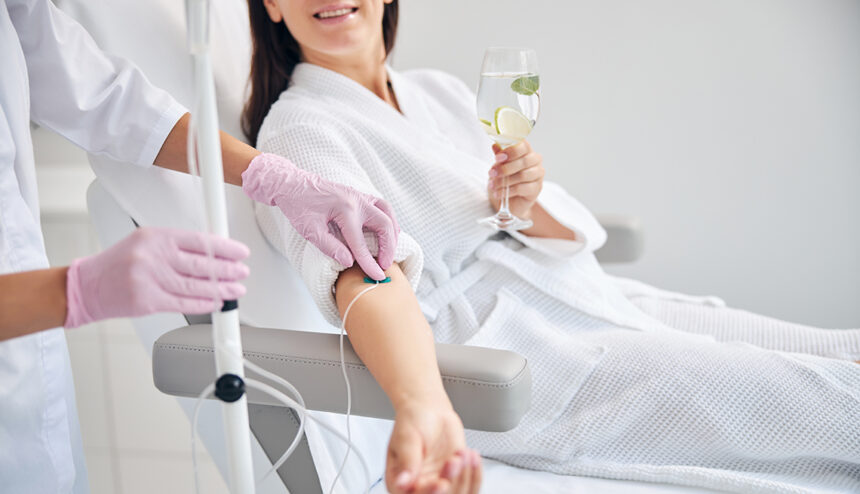IV Hydration Therapy has become a popular method to support recovery and maintain overall wellness. By delivering fluids and nutrients directly into the bloodstream, this approach bypasses the digestive system, offering faster absorption. While often associated with rehydrating athletes or treating hangovers, it is increasingly used in wellness and medical settings. This article explores how it works, when it is applicable, and its potential impact on recovery.
How Does IV Hydration Therapy Work?
IV, or intravenous, therapy involves administering fluids directly into a vein through a small needle. These fluids often contain a combination of electrolytes, vitamins, and other nutrients tailored to specific needs. Commonly used vitamins and minerals in IV therapy include vitamin C, B-complex vitamins, magnesium, and zinc. This targeted delivery allows for better absorption compared to consuming fluids orally, where absorption depends on the digestive process.
The procedure generally takes about 30 to 60 minutes to complete. During this time, patients are typically seated comfortably while the IV drip infuses the prescribed solution. Because the process bypasses the digestive system, the body can absorb nutrients like vitamins and minerals more efficiently, addressing deficiencies more directly.
When Should You Use IVs?
IV Hydration Therapy can support various needs depending on one’s lifestyle, physical condition, and goals. While it is not a one-size-fits-all solution, there are common scenarios where it often serves as a helpful tool.
- Dehydration Recovery: IVs can quickly restore hydration after intense workouts, long flights, or illness. Replenishing fluids intravenously may address dehydration faster than drinking water.
- Nutritional Support: For individuals with deficiencies or increased nutrient needs, vitamin-infused IV fluids offer a way to deliver key nutrients directly to the bloodstream.
- Illness Recovery: When recovering from conditions that involve frequent vomiting or diarrhea, IVs can help replace lost fluids and electrolytes efficiently.
- Performance Boost: Athletes sometimes use IV therapy after rigorous activities to replenish nutrients and improve recovery time.
- General Wellness: Some clinics offer IVs tailored for energy boosts, stress reduction, or immune support. These treatments often include a mix of vitamins and amino acids.
Can IVs Speed Up Recovery?
The ability of IV Hydration Therapy to aid recovery depends on the situation. When someone is dehydrated or deficient in specific nutrients, the method provides a more direct path to replenishment compared to oral alternatives. By addressing these deficits, the body may function more efficiently, potentially shortening the time needed to bounce back.
By including a mix of electrolytes, antioxidants, and other nutrients, an IV treatment may enhance hydration, energy levels, and overall recovery. Though outcomes can vary, the direct method of delivering nutrients bypasses potential absorption issues seen in traditional methods like drinking fluids or taking oral supplements. For conditions involving quicker replenishment of specific needs, IV therapy offers a supportive alternative.
Visit a Clinic Today
If you’re exploring ways to enhance recovery or address specific wellness goals, IV Hydration Therapy could be an option worth trying. Clinics offering these services often tailor treatments to meet individual needs, from hydration to nutrient replenishment. Learn more by visiting a trusted IV therapy provider to understand how their treatments might benefit you.





